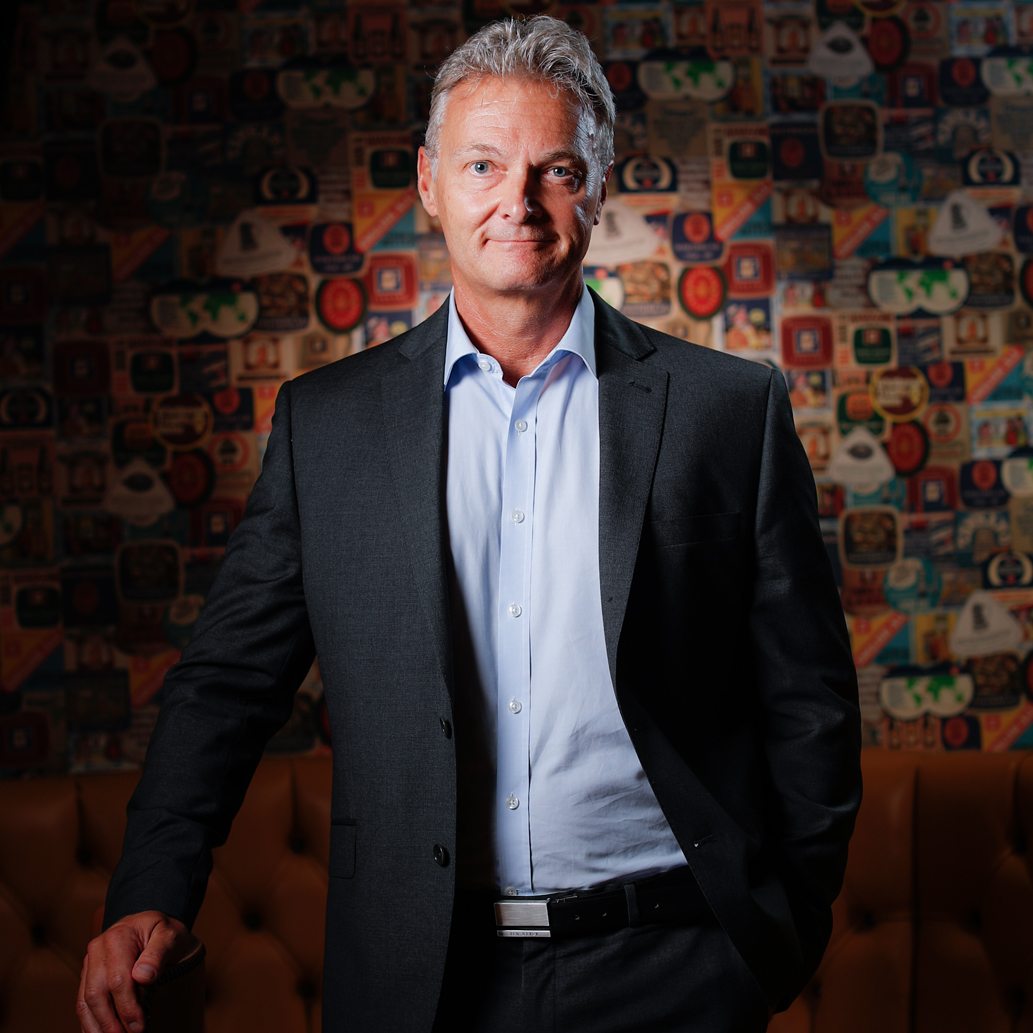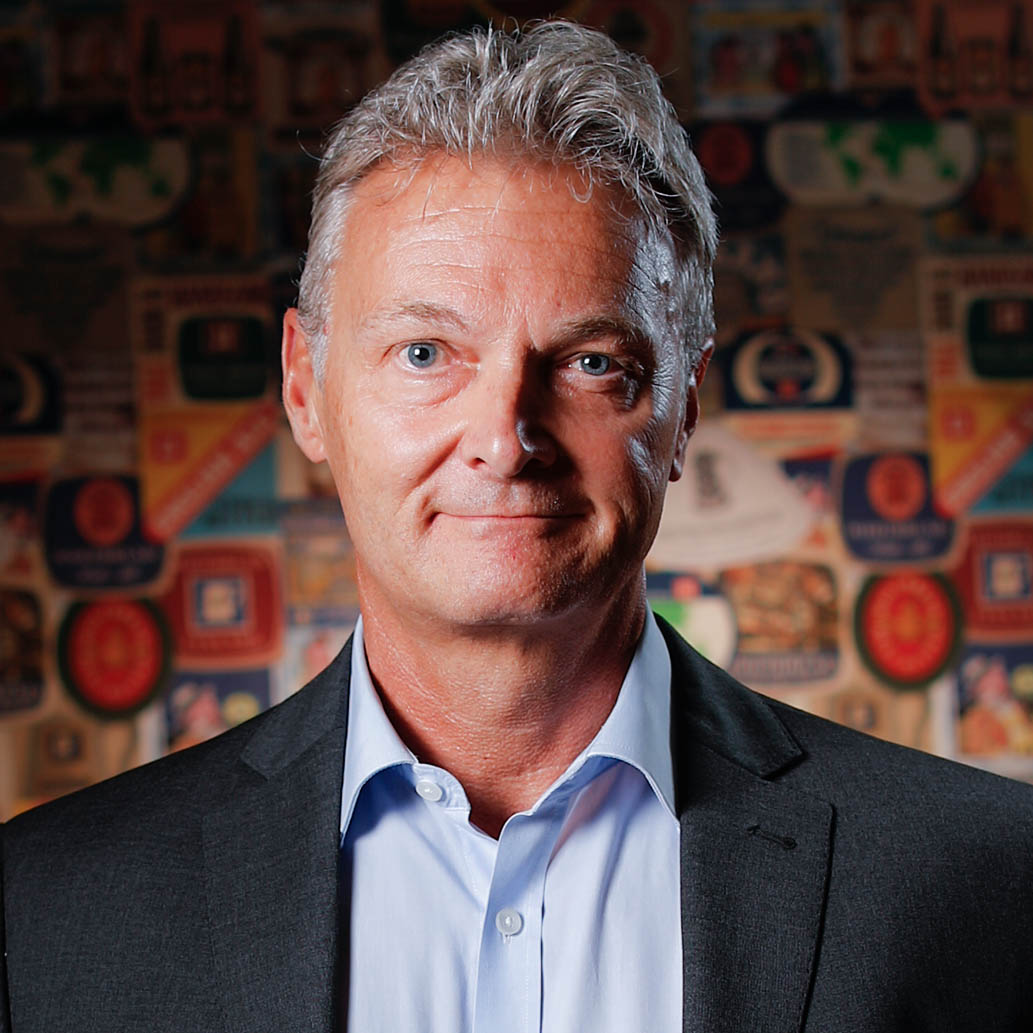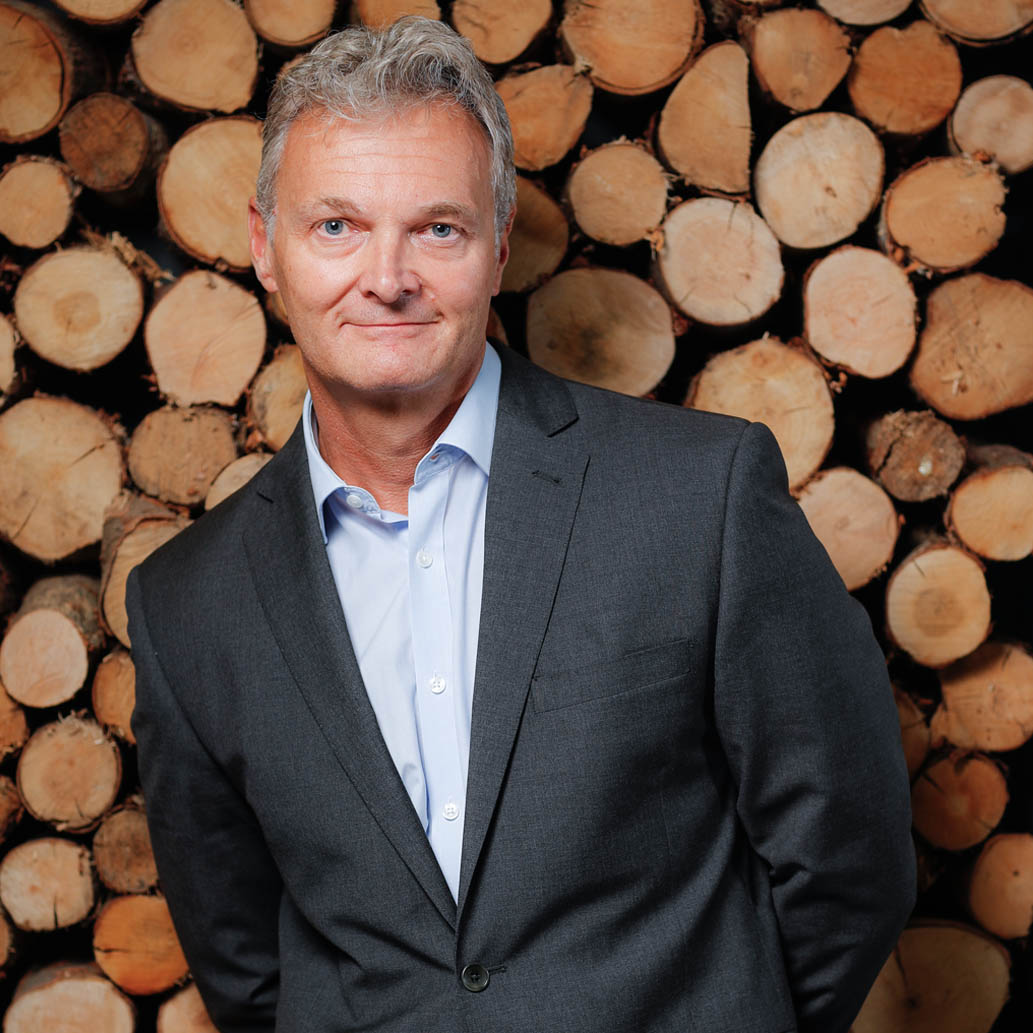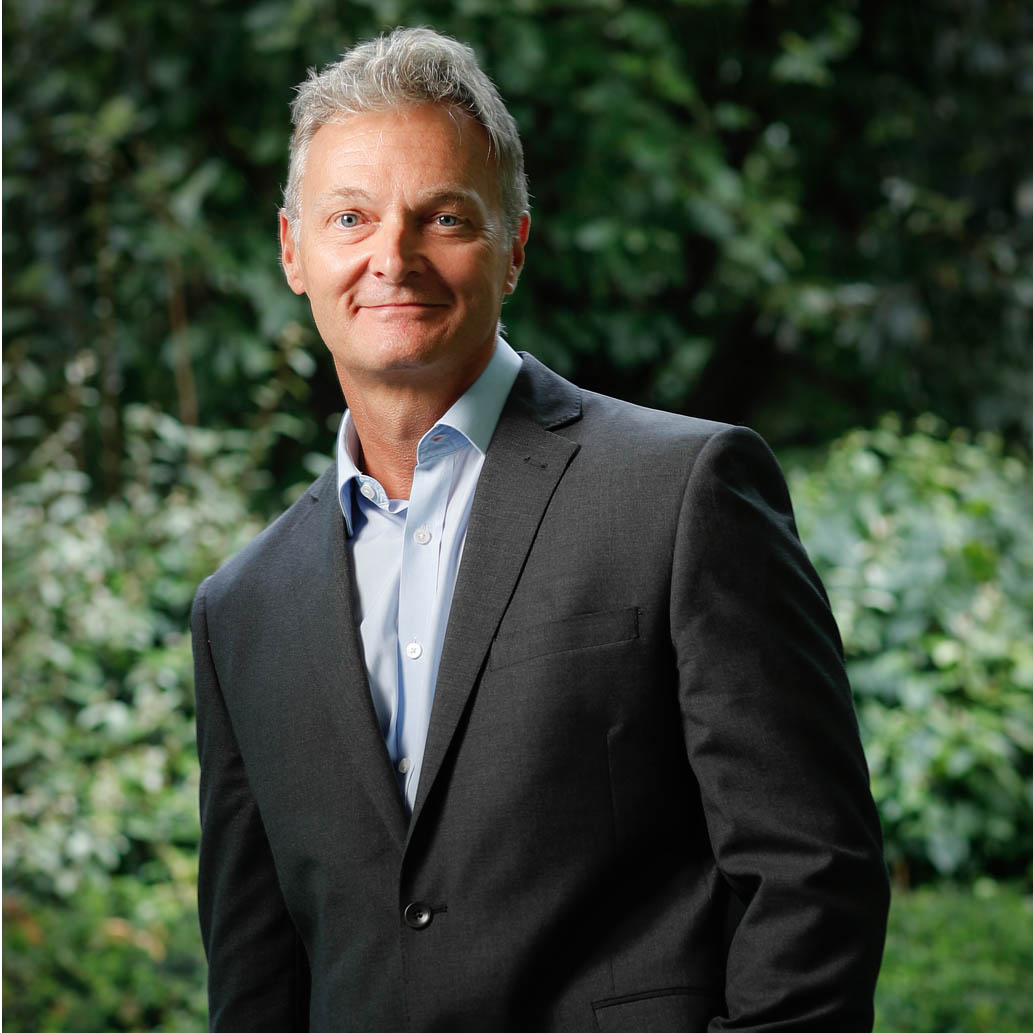Paul, tell us about your early life and why you decided on a career in HR.
Throughout school, I was always heading to university, but when it came to it, I actually made a snap decision. A friend I played cricket with had joined Marks & Spencer’s in a management trainee programme and that seemed to me like a good idea. I applied and, after several interviews, was offered a position. It was in London and the move proved to be a real eye opener, as I had grown up in a quiet, rural area. I as working in Tooting Broadway and found it a bit rough living on my own in a pretty unpleasant flat. Eventually M&S got me into company flats in Clapham where I shared with other trainees from the region. I had previously applied to Nottingham Trent University and had been accepted, so I had a dilemma, because although I was enjoying M&S, I had this gut feeling that I was missing out on something.
I decided to go to university and was so glad I did. I played a lot of sport, enjoyed the study and student life and actually met my future wife who was studying there too. After uni, I reflected that I had always enjoyed leadership in sport as I felt I could get the best out of people and somebody suggested I should try personnel management. I applied for the CIPD and that’s where my lucky break came. Part of the CIPD was a six week placement to a company called BSS, an industrial heating and plumbing company – something I knew nothing about. I took the placement there and the personnel team consisted of just three people. The manager said ‘look, we’re in a growth phase and we’re looking to take a graduate on’. I experienced a really great traineeship – I was there for 14 years in all – and really thrived. I loved the culture, which was not dissimilar to a rugby club, it was work hard and play hard. I’ve worked for two particularly inspirational people who have had huge impact on my career and shaped how I approach my role and the first was Pat Donovan, the previous Purchasing Director promoted to MD. He had this incredible charisma borne out of his sheer presence and he took me under his wing. The personnel manager was traditional, kind and helpful, and really supported me while Pat was always there to take me out of my comfort zone. My first few weeks at BSS were spent designing a health and safety workshop and then, in a hired Ford Sierra, I toured all 52 branches delivering the training. I got out on the road and it was a brilliant way to get to know all the managers. Not long after joining, the business embarked upon total quality management. The finance director went on a study tour to Japan with PA Management Consultants and came back totally enthused by the culture and how to engage your workforce through empowerment. They engaged some leading edge management consultants and a few people were chosen to manage the change programme and amazingly, I was one of them. I was presenting to 500 strong audiences and I really felt like I was on my way.
For me, the technical learning was really developing my skills and confidence and HR started to take a more proactive role in the business when a new HRD was recruited from the management consultancy. I was subsequently promoted to a senior training role, so I was there at the early stages of introducing and running the L&D development programmes, which was having a big impact on a lot of the managers going through it. We were really winning plaudits, a blend of traditional approaches with, looking back, some quite innovative things for the time. In fact I still get people emailing me so say how much they remember it, which is very gratifying. My wife and I started a family and I was being sponsored by the company to do a Master’s degree at the same time, which was exposing me to another level of HR and psychology. This nudged me towards more organisational development, which I found to be a fascinating aspect of business. BSS by now was really growing; we were taking market share, we acquired three companies, formed a new domestic division and we ran two separate management structures. I was promoted to HR Director and the role included Quality and Training and this was still early in my career and it was brilliant to operate at a senior level. So it was a double edged sword. Some of the inspirational senior people who had been so helpful to me, were becoming blockers of change. It got really difficult, I was getting into combative situations with people who I’d worked with for ten years and respected. I hadn’t changed, but I learned an important lesson around the symbolism of how to treat people who have served a business well and throughout I continued to receive great sponsorship.
Tell us about your next move.
There was a change of CEO at BSS and I felt the time was right to move on and I was successful in getting a role at Dixons as Head of HR for PC World. This was a massive shift culturally and in terms of scale. I was now based in Hemel Hempstead and the first 12 months was hard. This was a traditional sales-driven, results-driven business. The MD, who has just joined here at Whitbread, was my Operations Director at Dixons and one of the big and difficult cultural changes we made was to take out the commission culture. It was driving the wrong behaviours, in terms of customer relation and care, so as changes go this was seismic. Looking back it was courageous of the business to accept that change was necessary because while the culture of sales was important, we had often been rewarding the wrong behaviours. There was strong resistance to this among some high commission earners and, probably a bit naively, I drove to Liverpool for a meeting with the union. I explained to them why we were making the changes and to my surprise, they understood the rationale and saw that it would benefit the majority of team members.
A new MD joined from the Spanish business, Keith Jones, who would prove to be the next inspirational leader I was fortunate enough to work with. With Keith I truly got to understand the impact a good MD/HRD partnership could have and we recruited a strong senior team and experienced some really interesting cultural change work. The retail landscape was evolving and the business needed to adapt to deal with the channel shift to the internet and general relevance for a bricks and mortar retailer was needed. There had to be changes and John Browett joined as CEO from Tesco, bringing a lot of best practice around lean Six Sigma as well as new people. Soon after, Keith moved to join the sports shops chain JJB as CEO, and a few months later, he asked me to join him, which I did as HR Director. I had enjoyed a great relationship with Keith and I was excited by the challenge of working for a business in real difficulty and where I had great autonomy.
We developed the strategy of becoming an authentic sports retailer, looking to fill a gap in the market around providing high quality advice to customers. This meant some of the training and HR practices we introduced had to be quite innovative and delivered at low cost. It was an incredibly tough market with Sports Direct the dominant player and over time JJB had lost its relevance. The team, particularly in HR, was short of the skills required to drive the change and this was a period of huge learning for me. With less resource than I had been used to at Dixons we had to do more in a short space of time. I stayed in Wigan three nights a week, worked long days although it genuinely felt that under Keith’s leadership and with a new management team we were turning things around. While I wasn’t looking to leave, I was approached for a role in Whitbread as HRD for their restaurants business. I had completed the two years I had originally promised at JJB and once I met the MD, Paul Flaum, and learned about the ambitious plans and his passion to grow the business, I felt I had to take the opportunity. I took my family to our local Beefeater, somewhere I hadn’t been to for years, and they were all amazed at the food quality. Telling Keith about my decision was possibly one of the hardest things I have ever had to do, but as I’d come to expect from such an amazing leader, he was first class and fully understood my decision.
An incredibly dynamic business, how was the HRD role described to you and what did the they want you to achieve?
One of the first things that struck me was the fundamental culture of living values as opposed to laminating values. From the moment I walked through the door, I felt everybody I met was authentic, and the engagement was born from genuine belief in hospitality. Whitbread has fantastic brands in Premier Inn and Costa, brands that have thrived in difficult economic circumstances and have a very loyal customer base. The relationship between our restaurants and Premier Inn is critical as we provide breakfast and dinner to many of their guests. At the same time, restaurants also need to be brilliant at what they do in order to provide a great option for their local guests. The business was already committed to helping modernise the restaurant brands and it was really appealing to apply some of the knowledge of brand transformation and culture change that I had learned in Dixons and JJB. In Beefeater, we are now two thirds through the ‘Orange Cow transformation’ and our guests, new and existing, are loving the changes. We have developed an HR plan that is really aligned to the core purpose and business plan, and the way we are executing it is interesting. Our culture is what sets us apart from our competitors – we think ours is pretty special and it’s the thing no one can replicate.
We continue to evolve our brands and formats and have recently developed a concept and brand called ‘Bar + Block’ in Birmingham. It’s a derivation of Beefeater but its more about iconic steak. We are planning to open one at Kings Cross’ Premier Inn, which we see as very much the future as we support the development of Premier Inn’s food offer to their guests. The competition is tough and we are operating in a hard fought area of pub restaurants and, increasingly, the casual dining space. In addition, there is a whole new channel around eating out at home with retailers offering competitive take away food for people who perhaps would rather stay in. There’s this phrase we use which might sound a cliché, but is right at the heart of what we do – we are not just in the food business, we are in the memory business. We’ve developed a purpose to serve up great memories – birthdays, anniversaries, whatever occasion it is – so customers have a great night out, reasonably priced. That’s the sort of compelling experience that keeps them coming back and telling their friends and family about. Why would you choose us? Why would you come back to Beefeater or Brewers Fayre? It has to be value for money and the team members’ ability to enhance your experience is critically important. I’m a big fan of using stories as shorthand to explain what it feels like to work here, so that team members really engage with the message in terms of guest relations. We created iconic stories, based on real events and we continue to tell them to our new starters and existing teams; they help us understand what matters here and why our culture is so special. There’s a particular story that really hits the spot: Kirsty, Arthur and Miriam. It works on two levels because it shows what our teams do, day in day out to serve up great memories to our guests.
The story goes: ‘Lance Corporal Arthur Johnson was a hero, and like most heroes, Arthur likes his routine. Every Saturday he takes his sweetheart Miriam to lunch at their favourite restaurant. Kirsty always has their favourite table waiting for them. Arthur and Miriam love the fact that Kirsty knows their order. Miriam has the pate starter, Arthur has the rump steak, medium, baked mushrooms and a pineapple.’ That’s the basis of the story, Kirsty knows Miriam is in a wheelchair, she has everything ready for them and makes the whole experience very special for Arthur and Miriam. In many of our restaurants the relationship between team member and guest goes on to something more than just a friendly transaction. The things people do to enhance the experience of their guests is incredible. To see it delivered by people who are passionate about what they do and work long hours is genuinely humbling.
This sector is also notoriously transitory in terms of staff churn that must be a challenge for L&D and engagement.
Very much so – you look at the data on attrition and you wonder how we shift the dynamic, as it is a sector-wide issue. We work on tight margins, we of course pay the minimum wage and national living wage, but we are looking at how we can use pay for progression to improve retention and provide clear opportunities for our teams to improve their earnings and their careers. It is easy to say the sector is characterised by temporary work, but we are trying to change that dynamic and encourage people of all ages to see they can have a great career with us. A huge amount of thought and activity goes into engaging people to stay longer than three months with us and we have ambitions to push that to over the 12-month mark. That’s the point when people are at the level of competence that is a real asset to the business. This is a sector where people often don’t realise the potential they have and we are really focusing our managers on how they can better support their teams and bring this to life for them under our ‘You are the Main Ingredient’ people proposition. The speed at which a talented and driven team member can be a manager is probably unique in hospitality and especially so in Whitbread. There are so many people in our organisation who joined never thinking there would be a career for them, only to discover that they had a real talent for hospitality, and have gone on to have great careers. But hospitality definitely has difficulty in promoting itself as a sector with career potential, and so it’s really incumbent of businesses like ours to change that. The lack of skills is a real and significant concern for the sector. I truly believe that we can become famous for our management development and we are seeing some encouraging results from graduates of our new progression programmes.
And you are very reliant on branch management being open minded to good and talented staff developing and progressing - not keeping people to themselves.
For me, the critical relationship here is with the National Operations Director and our alignment on the key things we want our managers to prioritise across the business. We stand together in front of the managers and we are responsible for striking that balance between meeting standards of customer care and expectations and operations and efficiencies. It’s also building the pragmatism in managers to identify, promote and support their talent to progress. Our managers have an enormous amount of things to deliver every day and it is vital we support them in delivering the talent agenda. Maintaining that directness of communication is paramount to me, in terms of understanding what it’s like for people serving food to our guests. For HR it’s increasingly about Customer Relationship Management (CRM) as we look to understand more about our different employee segments and how best to motivate and engage them in a very personalised way. Where we have progressed well is in our talent planning and management which is a massive challenge in this sector.
Now we need to align that with our succession plan, as well as promoting mobility, in terms of career development and the potential of experiencing other areas of the business. We are also introducing a new way of rewarding and incentivising more inclusively, so that it rewards the behaviour we aspire to. So for example, we are looking to reward the managers who are net developers of talent, who are developing and promoting people, not only in their own businesses but also across the company, and we need a way of exemplifying that. Like everything we are trying to do, it’s that balance and it’s the culture we are promoting. Recognition is important to us too and we have set it up to be really meaningful, individualised and celebrated with peers, rather than just the traditional manager subordinate behind closed doors. All our senior managers love the time they spend bringing that recognition to life, celebrating the winners of our stories of the month and other highly sought after awards. Like all businesses, there’s plenty we get wrong and we aren’t perfect, but people know that we try hard and our intensions are authentic, and that breeds good will when we achieve something great.
What the next challenge on your radar?
Brand building will continue and increasing the appeal of those to a broader group of customers will help our ability to sustain growth. However there is the headwind of cost challenges as I’ve touched upon. Again retention will be key, as Brexit will impact on potential resources. Plus promoting our best sites as exemplars of great achievement, making sure our L&D and progression programs are exciting, and make sure we give people the right experiences and opportunities to see career potential. We have introduced an initiative called Sites of Expertise and we can now have much greater confidence that the on the job learning for our newly hired and trained managers will be of a consistent and high standard and the early signs of that are encouraging. However, the war for talent is right across our business needs, so absolutely key is building the employer brand further. It’s about further galvanising what works so well for us, encouraging people to see the wider picture in terms of the business and above all to have fun and feel confident to take up opportunities. At its heart hospitality is an incredibly rewarding place to be, and our ongoing success is reliant on getting that message out there.












